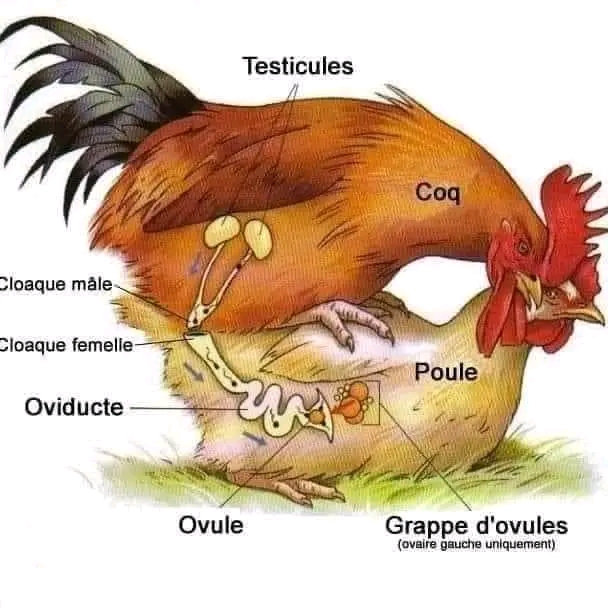
I know you may be wondering how, and here is the explanation.
Unlike other birds where you find partners, in chickens there is no courtship or romance. A rooster just forces himself on the hen. So what happens is when a rooster mates a hen, his injected semen is stored in numerous sperm storage tubules (SSTs) located in the area where the hen’s uterus joins the vagina. But this only happens provided the hen likes the rooster. If she doesn’t, she can squirt out the semen to avoid hatching his offspring. Therefore a hen may still proceed to lay eggs that are not fertile despite even mating with a rooster every day.

Since the sperm is released shortly after an egg is laid, and each egg takes approximately 25 hours to develop, an egg produced on the day of mating will not be fertile.
An egg laid the next day may or may not be fertile, depending on the timing. An egg laid on the third day definitely should be fertile.
So as you can see your hen can still have the first two or three eggs that are not fertile despite the hen and a rooster having mated.

The amount of time during which the hen will continue to lay fertile eggs depends on how much sperm fills the SSTs, which are capable of storing semen from multiple matings and multiple roosters.
Highly productive hens generally remain fertile longer than hens that lay at a slower rate. The average duration of fertility from a single mating is 10 to 14 days.
So it is possible that once your hen has mated with a rooster you can even take the rooster away and you can still have fertile eggs for the next 14 days.

Generally speaking, a hen who has mated will be fertile between 7 and 10 days after. It takes that long for the sperm to reach the oviduct where eggs are made. So it is possible that after mating, your hen can still continue to lay eggs that are not fertile for the next 10 days. This is why it is encouraged that for hens that are laying for the first time it is better to eat the eggs for the first two or three weeks instead of attempting to hatch them.

This is a sad one. Just like in humans, even in chickens we also have roosters that are infertile.
Why? Who knows. It’s maybe just something in his genes not working as it should. Again, very like the human condition. There’s not always a rhyme or reason.
NB- This article has been compiled to help people understand why at time they may hear those who provide hatchery services referring to their eggs not having been fertile. We know some have been wondering why the eggs are said not to be fertile yet they have the recommended number of hens and roosters that are also active for that matter.
While the article has been compiled from various sources that we believe to be credible, it is only for general information. For specifics relating to one’s flock we still recommend that farmers use the services of professionals.

![]()
Related News 
 - Napoli manager Antonio Conte was far...
- Napoli manager Antonio Conte was far...




